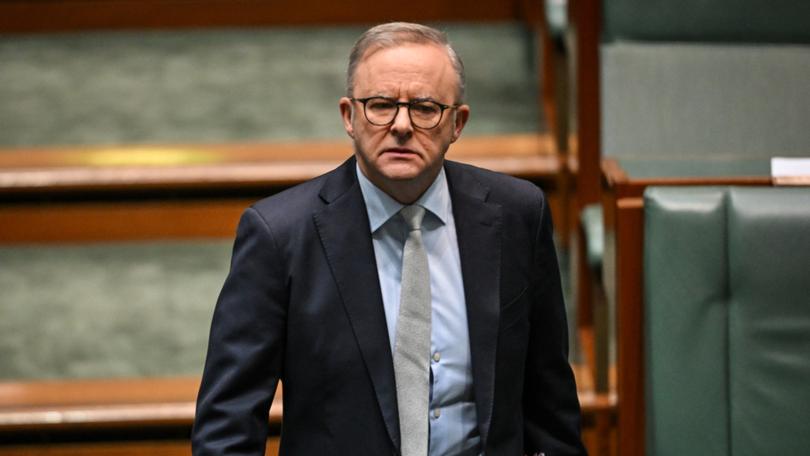Anthony Albanese’s salary to surpass $600k as pollies get a pay rise
Federal politicians will take home thousands of extra dollars from July, after the independent remuneration tribunal greenlit a 3.5 per cent pay rise.

Federal politicians will take home thousands of extra dollars this coming financial year, after the independent remuneration tribunal greenlit a 3.5 per cent pay rise.
Anthony Albanese will become the highest paid Prime Minister in history with his salary to increase to about $607,471 from July 1 — up from $586,929 — while Opposition Leader Peter Dutton will receive $432,239, an increase of $25,000 on the previous year.
The decision by the Remuneration Tribunal follows a four per cent increase in parliamentarians’ salaries last year.
Sign up to The Nightly's newsletters.
Get the first look at the digital newspaper, curated daily stories and breaking headlines delivered to your inbox.
By continuing you agree to our Terms and Privacy Policy.It means Deputy Prime Minister Richard Marles will have his pay increased to $478,968, with Treasurer Jim Chalmers and Senate leader Penny Wong both now earning about $438,968.
Greens leader Adam Bandt and Nationals leader David Littleproud will both take home $338,782 under the changes.
The average backbench MP will take home $233,643 a year — or about $4493 a week before tax.
In comparison, the Australian Bureau of Statistics estimates the average weekly earnings for a full-time worker is about $1889, with the average yearly salary about $98,218.
The ruling comes after the Fair Work Commission decided to lift the minimum wage by 3.75 per cent, and the tribunal noted in its decision that politicians would receive a pay rise smaller than the average improvement.
“The tribunal is aware the remuneration increases it has awarded to offices in its jurisdiction over the past decade have been modest,” it said.
“Including the current decision, the cumulative total of remuneration increases awarded by the Tribunal since 2015 amounts to 18.25 per cent. In contrast, remuneration increases more generally in the public and private sectors ... have equated to 24.4 per cent.”
The tribunal said pay for politicians must be “competitive and equitable”, and “sufficient to attract and retain people of calibre”.
“Many of these office holders do not expect or require that monetary compensation for their roles in the public sector be set at private sector levels,” it said.
“Rather, office holders serve for the public good and the opportunity to influence economic and social policy initiatives.”

